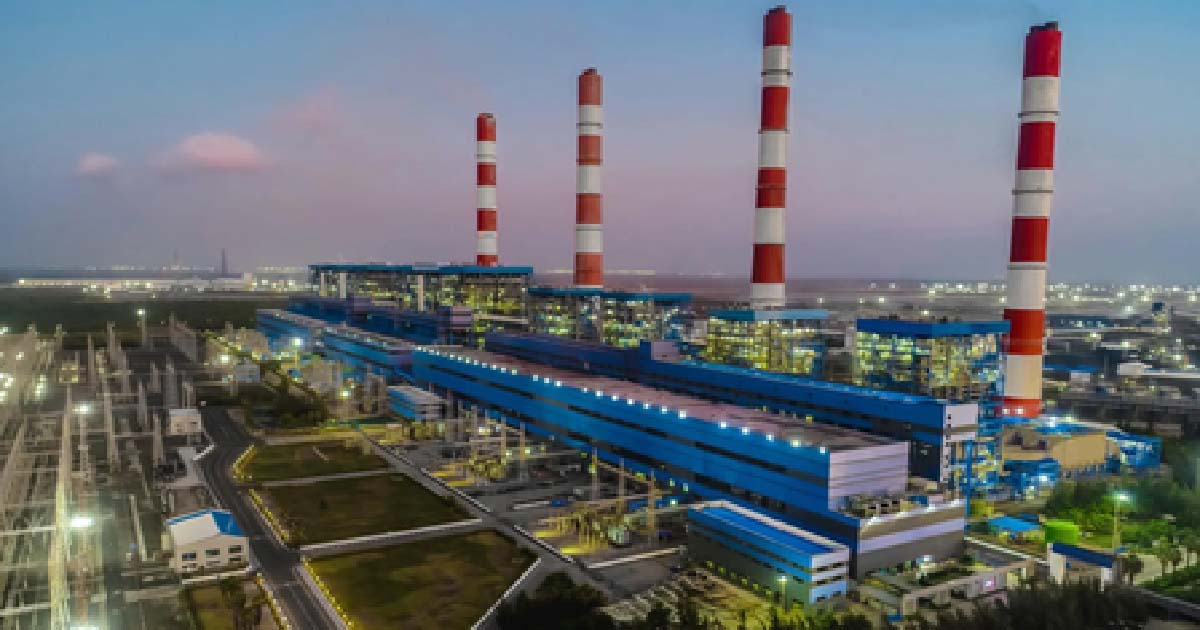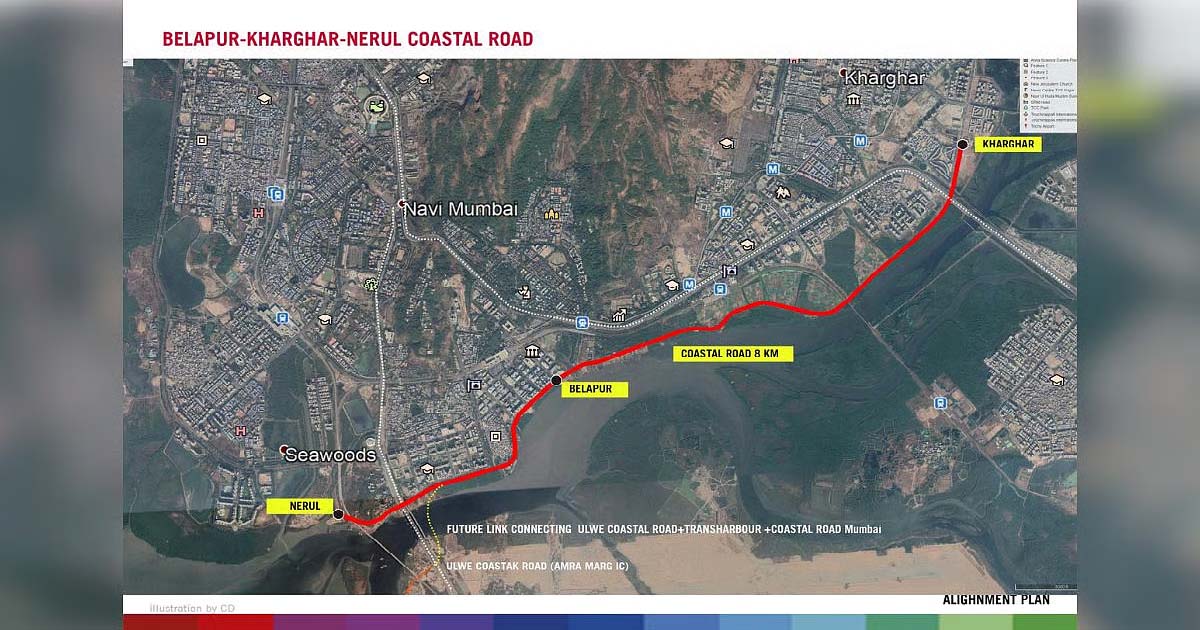Business
How Adani’s Rs 30,000 crore Bhagalpur power project will change Bihar’s fortunes forever

Ahmedabad/New Delhi, Nov 7: The 2,400 MW Bhagalpur Power Project, being developed by the Adani Group with an outlay of Rs 30,000 crore, marks a turning point in Bihar’s economic story — bridging its energy gap, reviving industry, and creating opportunities for its 13.5 crore citizens.
For the first time in decades, the state is witnessing a wave of serious private investment.
The plain fact is that for over half a century, Bihar has remained on the margins of India’s industrial story. Despite its demographic strength and strategic location, the state has struggled to attract private investment or build a sustainable industrial base.
The data tell a sobering truth: Bihar’s per capita GDP stands at barely $776, while its per capita power consumption — 317 kilowatt hours (kWh) — is the lowest among major Indian states.
In contrast, Gujarat consumes over 1,980 kWh per capita and has a GDP per capita of $3,917.
This is not a mere coincidence. Power and prosperity move together. Where there is reliable electricity, industries grow, jobs are created, and incomes rise.
Where there isn’t, human potential migrates — literally. Bihar today supplies nearly 34 million workers to other states; its youth are forced to seek livelihoods elsewhere because industry within the state has no power to thrive.
It is against this backdrop that the Bhagalpur (Pirpainti) Power Project, being developed by the Adani Group with an investment commitment of Rs 30,000 crore, takes on historic significance. It is not just a project — it is Bihar’s opportunity to plug into India’s growth grid and finally claim its share of industrial progress.
Bihar has seen little private industrial activity in half a century. In the past five years alone, it has recorded virtually no new large-scale projects. The state’s dependence on agriculture remains high — nearly 50 per cent of its working population is engaged in farming, forestry, or fishing, while only 5.7 per cent are employed in manufacturing.
The 2,400 MW Bhagalpur Power Project, originally conceived by the Bihar State Power Generation Company Ltd (BSPGCL) in 2012, was revived by the government in 2024 through a transparent e-bidding process after earlier attempts failed.
Four credible bidders — Adani Power, Torrent Power, Lalitpur Power Generation, and JSW Energy — participated. Adani Power emerged as the lowest bidder at Rs 6.075 per kWh, a tariff lower than comparable bids in Madhya Pradesh (Rs 6.22–Rs 6.30 per kWh).
Notably, no land transfer was involved. The land, acquired over a decade ago for the project, remains fully owned by the Bihar government, leased at a nominal rent under the Bihar Industrial Investment Promotion Policy 2025. After the project term, it reverts automatically to the state.
In an era where investor confidence depends on transparency and governance, the Bhagalpur model stands out as a template for responsible investment — balancing public ownership with private efficiency.
Bihar’s electricity demand has grown sharply in recent years, but supply has not kept pace. The state’s installed generation capacity of about 6,000 MW lags behind its peak demand of 8,908 MW (FY25), forcing it to import power from the national grid.
According to the Central Electricity Authority (CEA), the demand is projected to almost double to 17,097 MW by FY35. Without new generation projects, the state risks widening its energy deficit — limiting industrial expansion, weakening job creation, and constraining overall growth.
The Bhagalpur project can help fill this critical gap. By adding 2,400 MW to Bihar’s grid, it will supply nearly one-fourth of the state’s projected additional power needs over the next decade, according to people close to the development.
Moreover, infrastructure investments of this magnitude generate vast employment. As housing and infrastructure expert V. Suresh notes, every Rs 1 crore invested in infrastructure creates 200–250 man-years of employment across 70 trades.
By that metric, the Bhagalpur project alone could create millions of man-days of work — offering Bihar’s unskilled and semi-skilled workers local opportunities in construction, logistics, operations, and allied services.
According to people in the know, a reliable power supply will also open the door to downstream industries, expansion of manufacturing zones, and the development of logistics and transport corridors—unlocking Bihar’s potential in food processing, textiles, engineering, and MSMEs.
Bihar’s challenge has never been its people — it has been its power. The Bhagalpur project signals a crucial shift in the state’s development trajectory: from subsidy-driven survival to investment-led growth. It embodies what Bihar needs most — confidence from credible investors, infrastructure that scales, and energy that empowers.
For too long, Bihar’s youth have left home to light up other states’ factories and cities. The Bhagalpur project could finally begin to reverse that flow — bringing power, purpose, and prosperity back to where they belong.
Business
Navi Mumbai: CIDCO’s 9.6-Km Kharghar Coastal Road Work To Begin In 2026, Promises Faster NMIA Connectivity By 2029

Navi Mumbai: Construction of the much-anticipated Kharghar Coastal Road — a key link that will enhance connectivity to the upcoming Navi Mumbai International Airport (NMIA) — is expected to commence in early 2026, following the receipt of mandatory forest clearances.
Planned by the City and Industrial Development Corporation (CIDCO), the 9.678-kilometre-long and 30-metre-wide arterial road will connect the airport to major nodes such as Belapur and Nerul, significantly improving regional mobility and supporting economic growth across Navi Mumbai.
The project will also provide direct high-speed access to the International Corporate Park (ICP) being developed on the lines of Bandra Kurla Complex (BKC), the Golf Course, and the FIFA-standard Centre of Excellence (COE) at Kharghar.
A grade-separated interchange over the Sion-Panvel Expressway is part of the plan to ensure smooth traffic flow and reduce congestion between the airport and nearby business and recreational hubs.
Of the total road length, 6.96 kilometres will be newly developed, while the remaining portion will integrate with the existing network. The corridor will also cater to the anticipated transport demand from upcoming projects such as the Water Transport Terminal and Pradhan Mantri Awas Yojana (PMAY) housing schemes in the area.
CIDCO has awarded the construction contract to the J Kumar–J M Mhatre Joint Venture. Officials said the project will not only boost airport connectivity but also strengthen Kharghar’s position as a major residential and commercial hub, linking it seamlessly to Taloja and Navde.
“Known for its well-planned infrastructure, green cover, and educational institutions, Kharghar is poised to witness a new phase of growth once the coastal road becomes operational. Kharghar coastal road is estimated to be ready by 2029 if everything goes as per plan,” an official from CIDCO said.
Business
Telecom operators embrace AI to bolster revenues, drive efficiency globally

New Delhi, Nov 8: Leading telecoms globally are deploying artificial intelligence (AI) across network operations, customer service, and fraud prevention to drive efficiency and reduce costs, according to a new report.
These initiatives are already contributing to EBITDA margin gains, with predictive maintenance and automated support systems leading the way, according to an IDC report.
AI also enables personalised offerings and dynamic pricing, boosting average revenue per user (ARPU) and reducing churn.
Fraud detection systems enhanced by AI are helping reduce losses, reinforcing customer trust and regulatory compliance. With AI accelerating time-to-market for new services, telecoms can better monetize emerging technologies like 5G and edge computing.
“In the longer term, as AI continues to evolve, it will be increasingly recognized not as a mere technological enhancement, but as a strategic enabler poised to drive sustainable growth for telecommunications operators,” said the report.
Meanwhile, worldwide spending on telecommunication and pay TV services is projected to reach $1,532 billion in 2025, representing an increase of +1.7 per cent year-on-year, according to the IDC report.
The latest forecast is slightly more optimistic compared to the forecast published earlier this year, as it assumes a 0.1 percentage point higher growth of the total market value.
The regional dynamics remain mixed, with inflationary effects, competition, and Average Revenue per User (ARPU) trends playing a central role in shaping market trajectories, said Kresimir Alic, research director, Worldwide Telecom Services at IDC.
The breakdown by telecom service type confirms that established trends remain intact, despite adjustments to overall market forecasts.
Mobile continues to dominate, driven by rising data consumption and the expansion of M2M applications, which are offsetting declines in traditional voice and messaging revenues.
Fixed data services are also expected to grow steadily, fuelled by increasing demand for high-bandwidth connectivity.
The global connectivity services market is projected to grow at a compound annual rate of 1.5 per cent over the next five years, maintaining a cautiously optimistic outlook.
Business
Govt plans AI-based eKYC, global credential verification in DigiLocker

New Delhi, Nov 8: The Ministry of Electronics and IT on Saturday announced plans for AI-based eKYC and global credential verification in the DigiLocker platform.
The platform has evolved from a secure document storage service into a trust layer that connects citizens with ministries and departments, according to an official statement.
National e-Governance Division (NeGD), Ministry of Electronics and IT organised the National Conference on DigiLocker to discuss and showcase how DigiLocker evolves into a cornerstone of trust, convenience, and efficiency across government, education, and industry sectors.
The conference underscored the transformative role of DigiLocker in facilitating paperless governance, inclusive education, and secure digital services.
“DigiLocker serves as the trust layer connecting citizens, ministries, and departments—enabling secure, interoperable, and accountable digital governance. Our vision is a future where every digital interaction is trusted, every citizen empowered, and every institution accountable” said S. Krishnan, Secretary of MeitY, who chaired the conference.
Krishnan said that the platform advances India’s digital journey from connectivity to capability, service delivery to self-reliance and now from digitalisation towards trust.
Abhishek Singh, Additional Secretary of the Ministry of Electronics and IT, outlined the future of DigiLocker with AI-based eKYC and global credential verification, positioning it as a global model for paperless governance.
Presentations were made on integration of Digi Locker with Pension and Treasury systems in Maharashtra and with over 500 services through Sewa Setu Portal in Assam, the statement noted.
Seven states, including Assam, Himachal Pradesh, Madhya Pradesh, Meghalaya, Kerala, Maharashtra, and Mizoram, have been recognised as “DigiLocker Accelerators” for their distinct achievements.
DigiLocker allows citizens to access, verify, and share IDs, financial credentials and certificates securely.
-

 Crime3 years ago
Crime3 years agoClass 10 student jumps to death in Jaipur
-

 Maharashtra1 year ago
Maharashtra1 year agoMumbai Local Train Update: Central Railway’s New Timetable Comes Into Effect; Check Full List Of Revised Timings & Stations
-

 Maharashtra1 year ago
Maharashtra1 year agoMumbai To Go Toll-Free Tonight! Maharashtra Govt Announces Complete Toll Waiver For Light Motor Vehicles At All 5 Entry Points Of City
-

 Maharashtra1 year ago
Maharashtra1 year agoFalse photo of Imtiaz Jaleel’s rally, exposing the fooling conspiracy
-

 National News1 year ago
National News1 year agoMinistry of Railways rolls out Special Drive 4.0 with focus on digitisation, cleanliness, inclusiveness and grievance redressal
-

 Maharashtra12 months ago
Maharashtra12 months agoMaharashtra Elections 2024: Mumbai Metro & BEST Services Extended Till Midnight On Voting Day
-

 National News1 year ago
National News1 year agoJ&K: 4 Jawans Killed, 28 Injured After Bus Carrying BSF Personnel For Poll Duty Falls Into Gorge In Budgam; Terrifying Visuals Surface
-

 Crime1 year ago
Crime1 year agoBaba Siddique Murder: Mumbai Police Unable To Get Lawrence Bishnoi Custody Due To Home Ministry Order, Says Report












